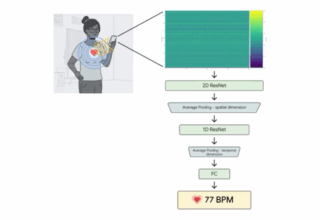
Depression is a shockingly common mental illness; it is thought that the overwhelming majority of adults in the United States will either suffer from depression themselves, or they will know someone who does at some point in their lives. For an illness so common, we have surprisingly little understanding of what depression is and what the underlying physical biological mechanisms that cause it are.
We can infer from the fact that certain classes of drugs, such as selective serotonin reuptake inhibitors (SSRIs), effectively treat the symptoms of depression in many patients that serotonin and other neurotransmitters play an important role. However, as much as we try to improve our models of depression based on this knowledge, we still have only scratched the surface.
Current Treatments
Current treatments for depression fall in to two broad categories, pharmaceutical interventions, such as SSRIs or MAOIs, and cognitive therapies, the most common of which is cognitive behavioural therapy (CBT). While these treatments have proven to be effective for a great many people, they are not universally effective. Our ultimate goal in combating any illness, physical or psychological, is to devise treatments which directly address the underlying cause and will therefore be effective for as many patients as possible. The website Examined Existence has some excellent articles on other treatment options.
The Problem
While all SSRIs work to produce the same effect, inhibiting the reuptake of serotonin so that more of it is present in the brain, they all do this via subtly different mechanisms. Patients often find that they have to try several different SSRIs until they find one that works, and given that these drugs often come with side effects, and that they require at least a month before their positive effects become apparent, the experience can be quite unpleasant for patients.
A New Approach
A new company called Revolutioner is hoping to revolutionize the way that we view and treat depression. Unconventional therapies are nothing new, there have been numerous attempts at devising alternative treatments in the past which are better tolerated and hopefully better tolerated than the current options. What sets revolutionizers concept apart from the others is that it uses technology in order to, as the company puts it, ‘restore balance in the brain’.
The idea itself sounds straightforward enough, the patient simply has to listen to a recording everyday, and the music takes advantage of something known as the binaural effect. The binaural effect works by playing two different sounds through headphones, one in the right ear, and one in the left. These sounds consist of a single note at a particular frequency, which is different in each ear. The brain then creates a third sound whose frequency is equal to the difference in frequency between the two sounds being played. The idea is that the brain then ‘retunes’ itself to that frequency;we can use this effect to put the brain into a state that is associated with feelings of wellbeing. By doing this everyday, we encourage the brain to adapt the state as its default.
This new approach to treating depression is showing great promise. Any treatment options which can help patients with treatment resistant depression should be taken seriously.















